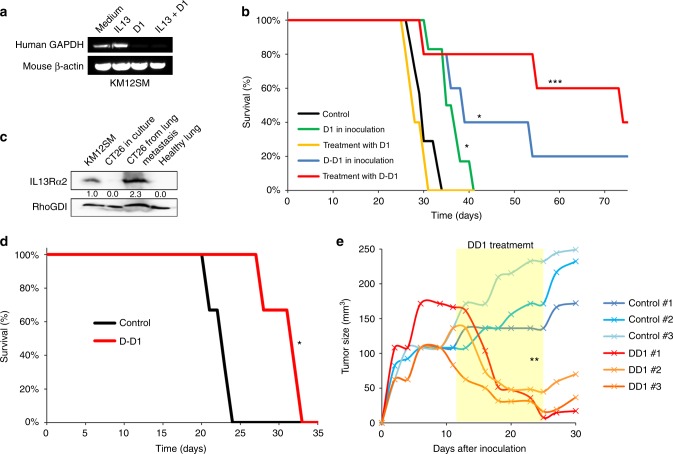Fig. 6.
D-D1 enantiomer increases mice survival to colorectal cancer metastasis and inhibits glioblastoma xenografts. a For liver homing, KM12SM cells were treated with the IL13 and/or D1 peptide and inoculated in spleen of nude mice. 2 days after inoculation, RNA was isolated from liver and subjected to RT-PCR to amplify human GAPDH. Mouse β-actin was used as loading control. b Kaplan–Meier survival results for nude mice intrasplenically inoculated with metastatic KM12SM cells treated with the peptides only (D1 in inoculation) or treated with seven doses of peptide (treatment with D1) administered intravenously. Mice survival was significantly enhanced after treatment with the peptides (*p < 0.05; ***p < 0.001). c Mouse CT-26 cells were isolated from Balb/c lung metastases, lysed and analysed for IL13Rα2 expression by western blot and compared to extracts from cultured CT-26 cells. KM12SM lysates were used as positive control for IL13Rα2 expression and RhoGDI as loading control. d Kaplan−Meier survival results for Balb/c mice inoculated with CT-26 cells in tail vein, and treated with seven doses of D-D1 peptide. Mice survival was significantly longer after peptide treatment (*p < 0.05). e U251 cells were inoculated subcutaneously. 11 days after inoculation, mice were treated with D-D1 for 2 weeks (yellow panel). Tumour growth is represented for both control and D-D1-treated mice. Treatment with D-D1 significantly inhibited tumour growth (**p < 0.01).

